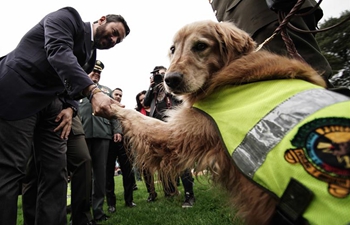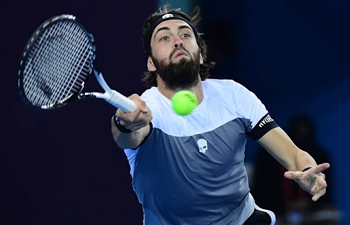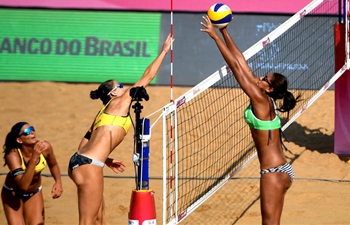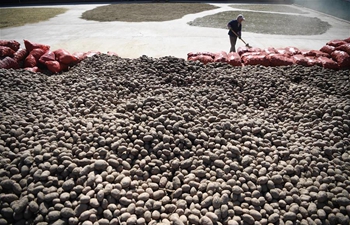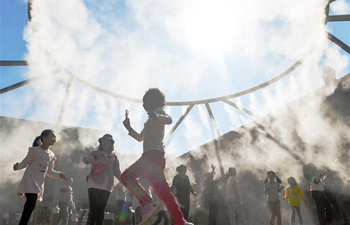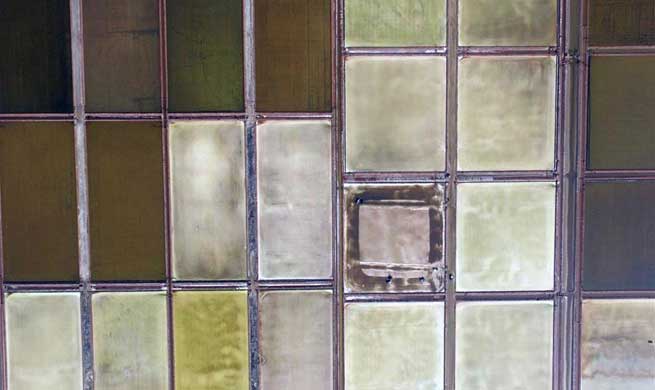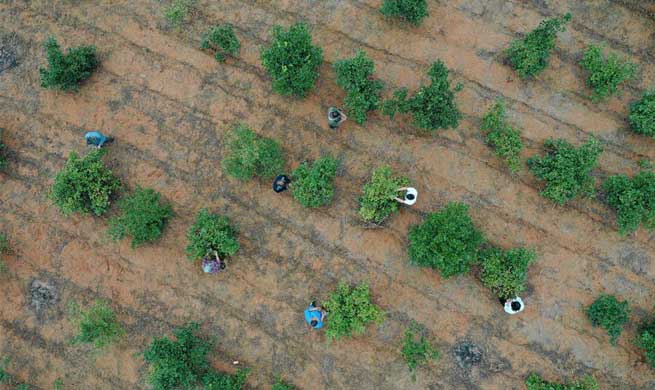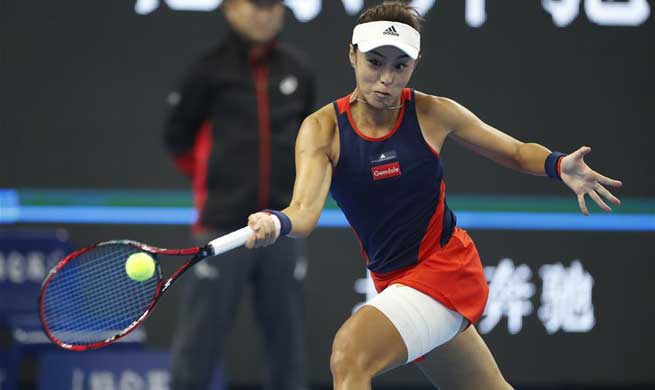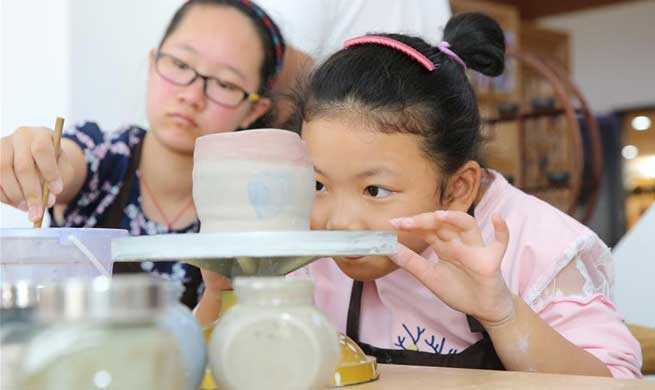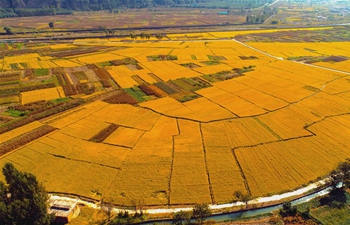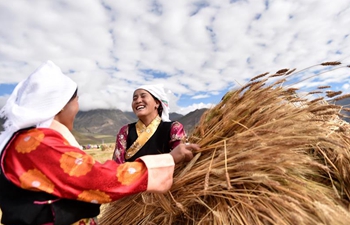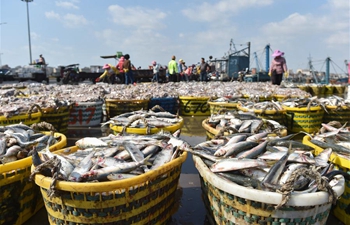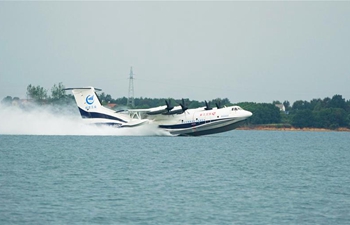BUENOS AIRES, Oct. 4 (Xinhua) -- The Youth Olympics are not just about achieving sporting success, but also with an educational program hoping to prepare the young athletes for successful careers, and for life in general.
During the quadrennial event, which will be held in Buenos Aires from October 6 to 18, athletes are being offered a series of workshops, discussion sessions and mentoring conversations with Games veterans chosen as role models by Buenos Aires 2018 organizers.
The program - whose activities will mostly take place at the Youth Olympic Village - will be divided into three segments: clean and fair competition; life beyond sports; and how to become a better athlete.
Among the role models that will work with athletes in Buenos Aires is United States climber Josh Levin, who stresses the importance of injury prevention, nutrition and personal development.
"When you're young, the tendency is to push the body as hard as you can and not to worry too much about recovery or nutrition," Levin told the official Youth Olympics website.
"It's hugely important that we start getting these athletes thinking about those concepts from a younger age so they have more questions about how to approach issues such as injury prevention.
"I think the knowledge that, as humans, we're pretty fragile and need to warm up properly is important. The idea when you're young of, 'Oh, I don't need to warm up' works when you're super young. But over the course of an athletic career, knowing how to properly prepare and avoid overuse injuries is important. A shoulder injury I had could have been prevented if I'd used the warm-up routine that I do now."
Another role model for the program is US fencer Daryl Homer, who won the individual sabre silver medal at the Rio 2016 Olympics.
"I'm hosting a forum on social media use and how to use your platform for good," he said. "It was much easier before, you could just focus on your sport and not have to think about how others perceived your involvement in a sport, or sharing all the things you were doing."
"Now it's about balance, it's tough. I tell athletes to keep it authentic, to hone their craft and not to feel pressured into being something that they're not, which is what happens sometimes on social media. It's OK to not share everything, to keep things to yourself and process how you feel. I think it's of the most importance to teach athletes about this stuff at this stage."
Andrea Lekic, Serbia's national handball team captain, is also participating in the program, outlining the dangers of doping, illegal betting and abuse to competitors.
"As much as we try to alert people that [doping] is not the right way to achieve results, I think [we] can raise awareness about what it means to use bad substances for success. The right information today is priceless. The athlete role models will show them a good and healthy path."
In addition to the role models, the IOC has appointed a safeguarding officer, who will help oversee any reported cases of harassment or abuse.
The program also includes a component that teaches athletes the basics of finance and law as well as techniques for dealing with social media and the traditional press.




